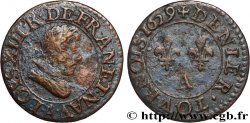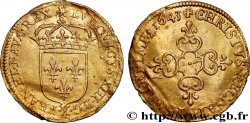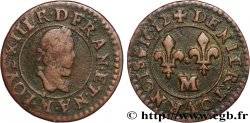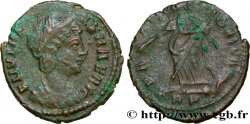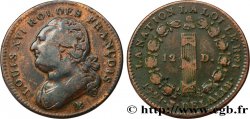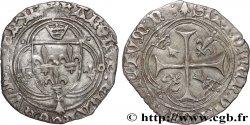得先注册又得到批准才可以报价。为了报价注册. 客户应该得到公司允许,那种过程需要 48 个小时。别等出售结束那一天才登记。您报价的话等于您赞成买那物品,而且按« 保价 » 证明您接受 cgb.fr 因特网拍卖使用法.
报价时只可以出全数值欧元总额。物品描述也说明销售结束时间,结束后出价都不会生效。 报价命令转达有时变动,等到最后秒钟增加否决的可能会。想多了解的话请注意 因特网拍卖常问
最高出价方将支付18%的不含税的拍卖费用
最高出价方将支付18%的不含税的拍卖费用
| 估算 : | 80 € |
| 价格 : | 52 € |
| 最高出价 : | 65 € |
| 拍卖结束日期 : | 17 December 2024 15:10:36 |
| 竞拍人 : | 2 竞拍人 |
种类 Médaille, Maximilen de Béthune, duc de Sully
日期: (1944)
材质 bronze
直径 67,5 mm
模子方针 12 h.
硬币制模工 DELANNOY Maurice (1885-1972)
重量 150,47 g.
侧面 lisse + corne METAL D.
印模 corne METAL. D
关于品相的说明
Patine hétérogène. Présence de taches d’oxydation. Présence de quelques coups et rayures
出版目录中的项代码 :
正面
正面的文字 MAXIMILIEN / DE BETHUNE / 1560 / 1641 - DUC DE / SULLY.
正面的说明书 Buste cuirassé de Sully à gauche, signé : M. DELANNOY.
背面
背面的文字 LA TERRE DE FRANCE / N’EST PAS MOINS / RICHE DE PROMESSE QUE DE GLOIRE / PÉTAIN // LE LABOURAGE ET LA PASTOURAGE / VOILA LES DEUX MAMELLES DONT / LA FRANCE EST ALIMENTÉE / SES VRAYES MINES ET / TRÉSOR DU PÉROU /.SULLY;.
背面的说明书 L’abondance couchée sur une ligne d’exergue, avec une scène pastorale et une scène de labours au second plan ; légende en 4 lignes au-dessus et en 6 lignes au-dessous.
评论
Maximilien de Béthune, duc de Sully, né POL à Rosny le 13 décembre 1559 et mort à Villebon le 22 décembre 1641, pair de France, maréchal de France, prince souverain d'Henrichemont et de Boisbelle, baron puis marquis de Rosny, marquis de Nogent-le-Rotrou, comte de Muret et de Villebon, vicomte de Meaux, est un militaire protestant et un compagnon d'armes du roi Henri IV de France dont il devint l'un des principaux conseillers.
Maurice Delannoy, né à Paris le 11 mars 1885, mort en 1972, est un sculpteur et graveur de monnaies et de médailles français. Maurice Delannoy étudie à l'École Germain Pilon, où il est l'élève de Charles Valton et de Jules Édouard Roiné. Il est sociétaire de la Société des artistes français et obtient une première médaille en 1931. Maurice Delannoy conçoit des monnaies marocaines, libanaises et monégasques. Le catalogue général illustré des éditions de la Monnaie de Paris répertorie 99 médailles de sa main..
Maximilien de Béthune, Duke of Sully, born POL in Rosny on December 13, 1559 and died in Villebon on December 22, 1641, peer of France, marshal of France, sovereign prince of Henrichemont and Boisbelle, baron then marquis of Rosny, marquis of Nogent-le-Rotrou, count of Muret and Villebon, viscount of Meaux, was a Protestant soldier and a companion in arms of King Henry IV of France, of whom he became one of the principal advisors. Maurice Delannoy, born in Paris on March 11, 1885, died in 1972, was a French sculptor and engraver of coins and medals. Maurice Delannoy studied at the École Germain Pilon, where he was a pupil of Charles Valton and Jules Édouard Roiné. He was a member of the Society of French Artists and received his first medal in 1931. Maurice Delannoy designed Moroccan, Lebanese, and Monegasque coins. The illustrated general catalog of the Paris Mint editions lists 99 medals by him.
Maurice Delannoy, né à Paris le 11 mars 1885, mort en 1972, est un sculpteur et graveur de monnaies et de médailles français. Maurice Delannoy étudie à l'École Germain Pilon, où il est l'élève de Charles Valton et de Jules Édouard Roiné. Il est sociétaire de la Société des artistes français et obtient une première médaille en 1931. Maurice Delannoy conçoit des monnaies marocaines, libanaises et monégasques. Le catalogue général illustré des éditions de la Monnaie de Paris répertorie 99 médailles de sa main..
Maximilien de Béthune, Duke of Sully, born POL in Rosny on December 13, 1559 and died in Villebon on December 22, 1641, peer of France, marshal of France, sovereign prince of Henrichemont and Boisbelle, baron then marquis of Rosny, marquis of Nogent-le-Rotrou, count of Muret and Villebon, viscount of Meaux, was a Protestant soldier and a companion in arms of King Henry IV of France, of whom he became one of the principal advisors. Maurice Delannoy, born in Paris on March 11, 1885, died in 1972, was a French sculptor and engraver of coins and medals. Maurice Delannoy studied at the École Germain Pilon, where he was a pupil of Charles Valton and Jules Édouard Roiné. He was a member of the Society of French Artists and received his first medal in 1931. Maurice Delannoy designed Moroccan, Lebanese, and Monegasque coins. The illustrated general catalog of the Paris Mint editions lists 99 medals by him.







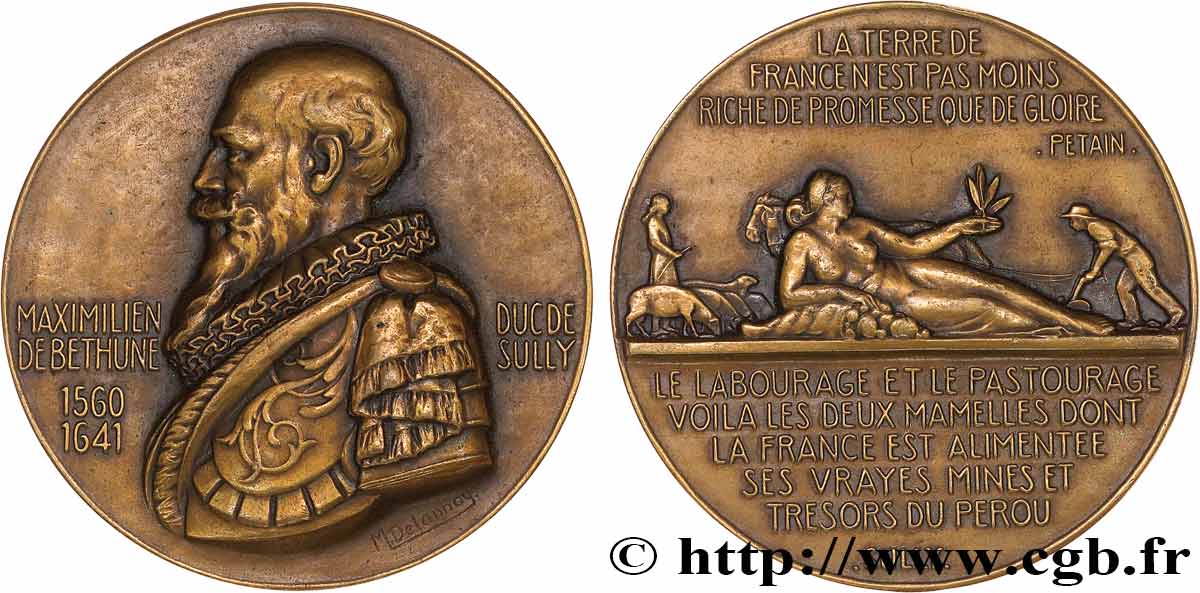
 对产品描述纠错
对产品描述纠错 打印
打印 分享我的选择
分享我的选择 提问
提问 Consign / sell
Consign / sell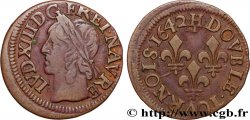
 产品介绍
产品介绍
